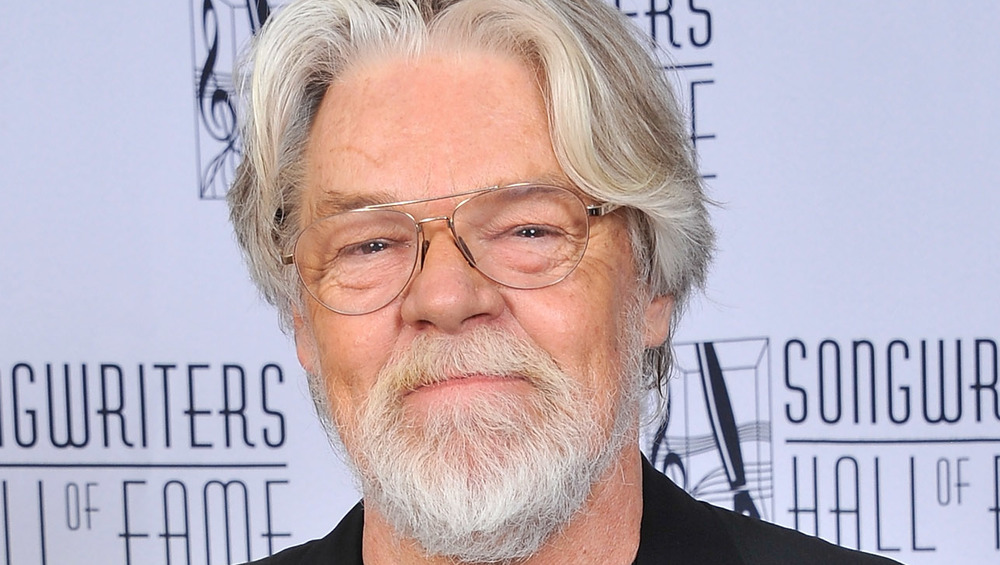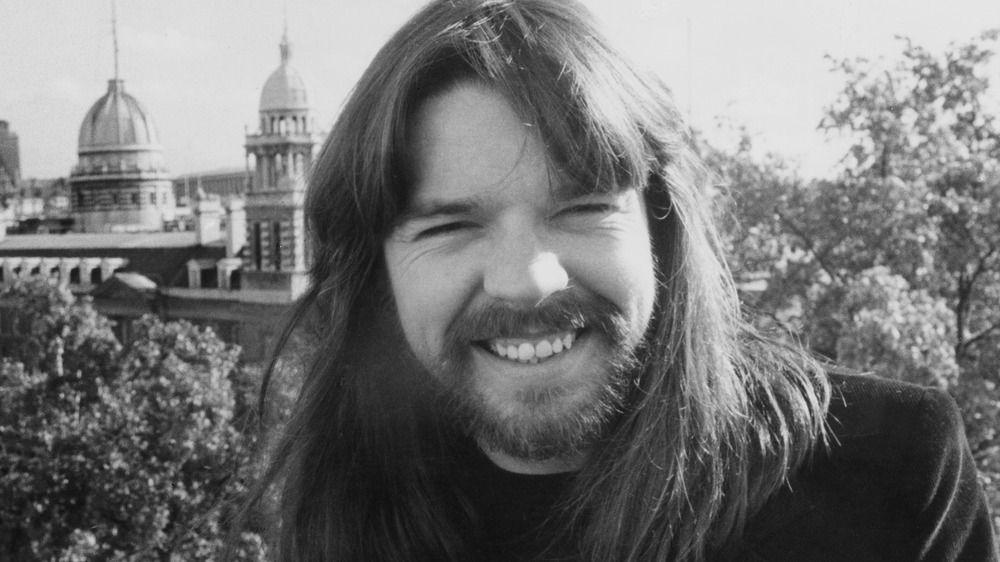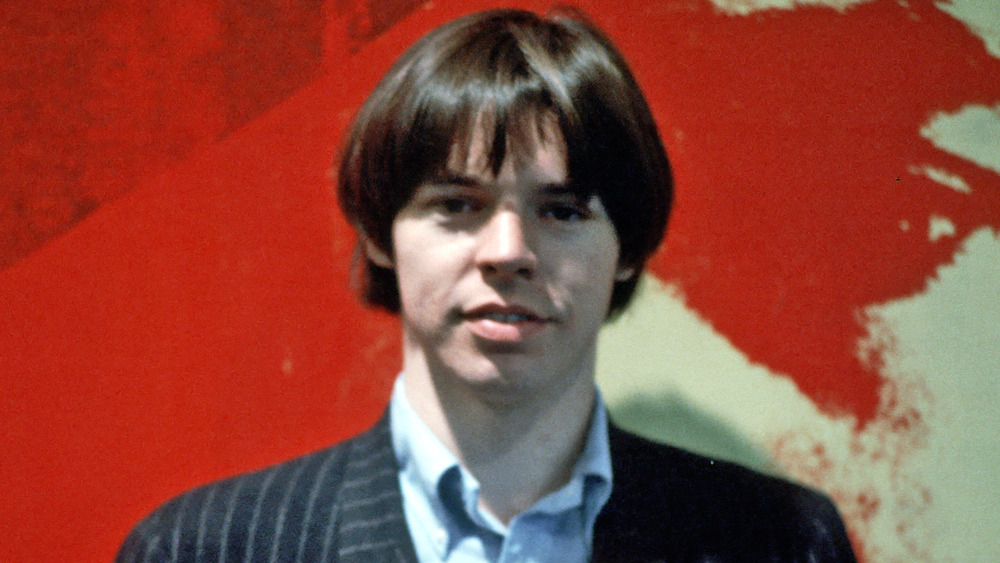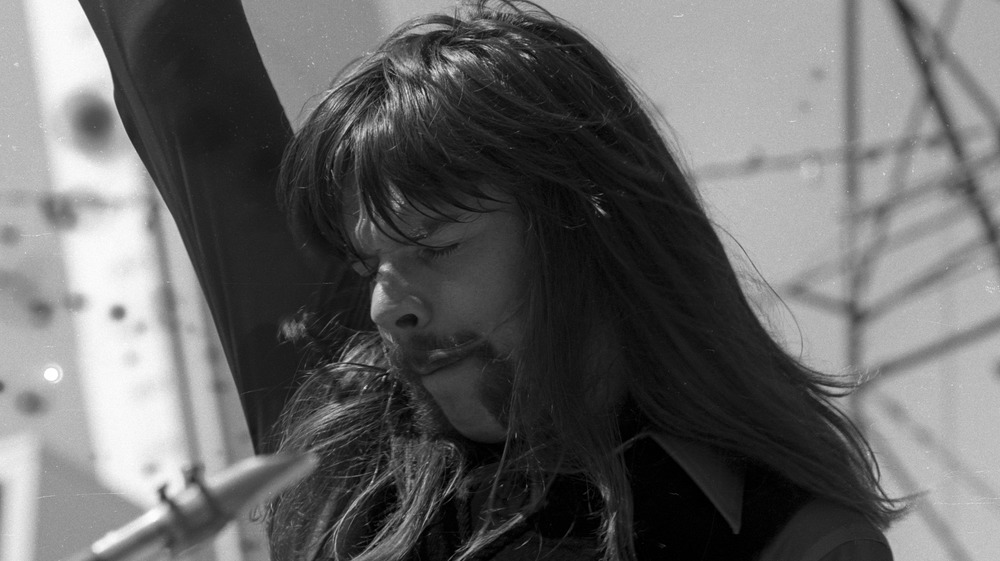The Other Music Groups Bob Seger Has Been A Part Of
For over six decades and counting, Bob Seger has been a mainstay of the Detroit music scene. He was seemingly bound for one-hit wonder status after "Ramblin' Gamblin' Man" peaked in the top 20 of the Billboard pop charts in 1969, without another charting singles for years. But with the success of "Night Moves" in 1976, Seger became a well-known commodity outside of his hometown, following that up with several more hit singles as he became one of the most prominent American rock musicians of the 1970s. And that's not even mentioning the hits Seger composed for other bands as a songwriter, such as the Eagles' "Heartache Tonight."
Seger recorded most of those hit songs with his usual backing group, the Silver Bullet Band, and he also enjoyed a lot of success as a solo artist, with his 1987 song "Shakedown" becoming his first and only No. 1 hit on the pop charts. However, this legendary musician played in his fair share of bands before forming the Silver Bullet Band and reaching the pinnacle of rock stardom. And it all started with the usual first step for many future heavyweights of the music world: a high school garage band.
He recorded his first song with the Decibels at just 16
Bob Seger was still in high school when he formed his first band, the Decibels, and recorded a song called "The Lonely One" in 1961. An extremely rare release, only six copies of the record were ever distributed, and the song was played once by an Ann Arbor radio station before it was forgotten for the next 60 years.
"The Lonely One" finally got played a second time on the morning of March 15, 2021, thanks to the efforts of WCSX-FM disc jockey Big Jim, who had been on a "quest" for years to find the elusive recording, as reported by The Detroit News. Even better: The song happened to be about the same girl who served as the inspiration for "Night Moves" some 15 years later.
As quoted by The Seger File, the singer looked back on the Decibels in a 1977 interview with Crawdaddy, recalling that the band started as a doo-w*p vocal group influenced by acts like Dion and the Belmonts. When three of the six members quit, Seger and the other two remaining members picked up instruments, with the future hitmaker doing double duty as the band's vocalist and bassist, and apparently feeling quite awkward while at it.
"I was out front, but then I took the bass," he remembered. "Only I couldn't play and sing at the same time, so I just held it, pretending that I knew what I was doing."
Bob Seger was nearly sued while playing for this early band
After the Decibels broke up, Seger formed another band, the Town Criers, and while not much is known about this act, he gained further prominence — and a fair bit of controversy — a few years later as a member of Doug Brown and the Omens. While he was, as the band name suggests, technically not the man in charge of The Omens, Seger was on lead vocals when the group tweaked its name to the Beach Bums and released a parody version of Staff Sgt. Barry Sadler's patriotic chart-topper from 1966, "The Ballad of the Green Berets."
As seen in the song's lyrics (posted at Genius), "The Ballad of the Yellow Beret" is a jab at young men seen as being too scared to serve their country in the Vietnam War. But while Seger, who was cleverly credited under the pseudonym "D. Dodger," might have been having some fun by rewriting one of 1966's biggest hits, the song's original performer didn't see it that way. According to Country Thang Daily, Sadler and his label, RCA, threatened to file a lawsuit over the parody, forcing the Hideout/Punch label to pull "The Ballad of the Yellow Beret" from radio stations.
The Last Heard, aka the Bob Seger System
Following his stint with Doug Brown and the Omens/the Beach Bums, Seger formed The Last Heard, which brought him closer to the Billboard charts, but not quite. As pointed out by Pitchfork in its review of the anthology album Heavy Music: The Complete Cameo Recordings 1966-67, the song "Heavy Music" was as close as Seger got at that time to capturing the sound he later became famous for, with its hybrid of Motown and proto-punk influences allowing him to combine "passion with party music." The song nearly cracked the Billboard Top 100 but fell just short when The Last Heard's label, Cameo/Parkway, closed its doors.
Despite that setback, Seger's local success led to a deal with Capitol Records and a new band name for The Last Heard. As that name apparently sounded a bit too much like "the last turd" when mentioned by motormouthed radio DJs, the group was rechristened The Bob Seger System, and by 1968, they released their first album, Ramblin' Gamblin' Man.
Aside from the title track, which reached No. 17 about a year later, Ramblin' Gamblin' Man was also notable for the inclusion of The System's first official single, "2 + 2 = ?," per Ultimate Classic Rock. Unlike "The Ballad of the Yellow Beret," "2 + 2 = ?" was clearly a "defiant" number that "[made] no secret" about how Seger was now firmly against the Vietnam War.
Bob Seger's other pre-Silver Bullet bands
Aside from the brief histories of his 1960s bands, The Seger File also goes into detail about the multiple bands Seger played for before forming the Silver Bullet Band. After The System broke up, he formed a "temporary" band with drummer Dave Teegarden and keyboardist Skip Van Winkle, called STK, with the "K" standing for Van Winkle's real surname of Knape.
In a 1972 interview with Creem that's posted on the Seger File site, Seger recalled that STK suffered from a lack of direction, with each member of the group wanting to do something different based on their respective musical influences. He did, however, admit that the band helped him recapture his love of performing in front of audiences.
With Teegarden, Van Winkle, and bassist Michael "Monk" Bruce backing him up, Seger released the album Smokin' O.P.'s under his own name in August 1972. Teegarden would later reunite with Seger when he replaced original Silver Bullet Band drummer Charlie Martin.
Following the release of Smokin' O.P.'s, Seger was part of a touring act from Michigan that went by a variety of "internal" names, including Julia, the Borneo Band, and My Band, that were seemingly never mentioned during their shows. Two future Silver Bullet Band members, guitarist Drew Abbott and saxophonist Alto Reed (then going by his real name, Tom Cartmell), occasionally performed with this group.




